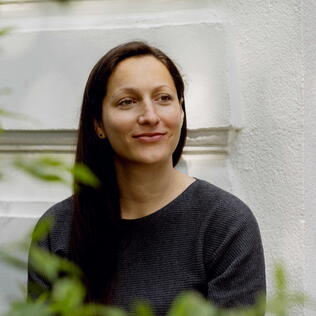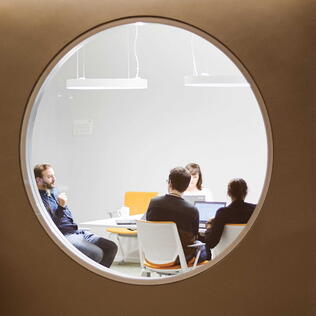The Changing World of Work: Quiet Quitting and Other Phenomena

Quiet Quitting, early fluctuation, skilled labor shortage – the employment market is currently undergoing profound changes. How the Otto Group manages to remain capable of acting in times of transformation.
In recent months, Quiet Quitting has developed from a TikTok trend to a widely discussed phenomenon. It started with a video by software developer and TikToker Zaid Khan, in which he introduces the term under the hashtag #workreform and the following words:
"I recently learned about this term called Quiet Quitting, where you're not outright quitting your job, but you're quitting the idea of going above and beyond. You're still performing your duties, but you're no longer subscribing to the hustle culture mentality that work has to be your life. The reality is it's not — and your worth as a person is not defined by your labor."
The video went viral and has well over three million views. It was followed by numerous other clips on Twitter and TikTok, blogposts and articles that carried and debated Khan's approach. Many found themselves echoing his words. Others accused Quiet Quitters of laziness or blamed them – such as former U.S. Secretary of Treasury Larry Summers – for declining productivity in the United States.
Khan had obviously struck a nerve. And that's no coincidence. For several years now, the labor market has been churning. Quiet Quitting is one symptom of many. For example, early fluctuation of employees, i.e. quitting within the first year of employment, is on the rise. When employees realize that it's not a good fit, they leave. As the shortage of skilled workers continues to worsen, most of them hardly must worry about being without a job for long.
Not less, but different
Zaid Khan said that during the pandemic he had noticed how much overworking was affecting his health. Physically and mentally. He quit and took a job where his boss took his needs seriously. His example shows that the labor market in many industrialized nations is changing from a pure employer's market to an employee's market. In many areas, employees have more say than ever in their working conditions. Employers increasingly have to adapt, rather than the other way around. Studies and surveys conducted in recent years show that people today do not necessarily want to work less per se, but they do want to work differently. More freely, more flexibly, more self-determined. And they want their achievements to be recognized more.

Resilience through Kulturwandel
The Otto Group recognized early on that adaptability and changeability in times of transformation are the levers for remaining performant in the long term and for attracting new and existing talent. How we work, what skills we need or how a team is managed efficiently and empathetically, all of this is constantly being put to the test and is constantly evolving. Thanks to our Kulturwandel process launched seven years ago, we have initiated far-reaching changes in the Otto Group that have made our organization adaptable. Our mindset enables us to keep trying out new methods and processes, to develop further and to adapt flexibly to new market conditions – which sets us up for the future. To achieve this, daily learning was and is just as important as personal exchange. Between Group management and employees, between executives and their teams, in open-plan offices as well as in video conferences. Across company and divisional boundaries, throughout the Group, there is an open and trusting atmosphere at eye level, in which everyone can contribute experience and knowledge to find the right way forward together. The willingness to change oneself and the organization is and remains the most important prerequisite.
Together and not alone
Kulturwandel is not a project of individuals, but a joint Group-wide process that makes us strong for the future – both economically and interpersonally. It strengthens the sense of unity and identification with the company. In addition, values and responsibility for people and nature are deeply anchored in our self-image – and also in that of our employees. This creates an environment that ideally leads to attracting and retaining employees. In addition, we at the Otto Group support our colleagues in not extending their work into their free time. "Working at work" is important to us, as are meaningful activities that are fulfilling. This is certainly not always possible everywhere. But together we are working on it. This also applies quite literally to day-to-day collaboration: In many Group companies, we live a hybrid work culture based on the activity-based working concept, in which teams and employees decide for themselves where they can work best.





